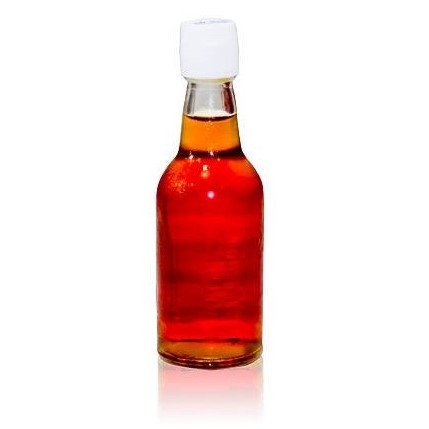
Can Dogs Eat Fish Sauce? Fish sauce is made from fermented fish, usually anchovies, combined with salt. It’s commonly used to add a strong, savory flavor to dishes, especially in Asian cuisine.
While it’s a great ingredient for humans, the high sodium content in fish sauce can be problematic for dogs. Let’s explore why this condiment may not be safe for your pet and what alternatives are better for their health. So,let’s explore that- Can Dogs Eat Fish Sauce?
Potential Benefits of Fish Sauce for Dogs
While fish sauce is generally not recommended as a regular part of a dog’s diet, there are some potential benefits due to its ingredients. However, it’s important to note that the risks of salt toxicity and digestive issues often outweigh these benefits.
Source of Omega-3s
- Beneficial Fatty Acids: Fish sauce is derived from fish, which contains omega-3 fatty acids. Omega-3s are known to support heart health, joint function, and coat quality. However, the small amounts found in fish sauce are unlikely to provide significant nutritional value for dogs compared to other direct sources of omega-3s, like fish oil.
Protein Content
- Trace Amounts of Protein: Fish provides protein, an essential nutrient for dogs, and fish sauce may contain small amounts. However, the protein content in fish sauce is minimal, so it’s not an efficient way to meet your dog’s protein needs. There are much better sources of protein that are safer for dogs.
Strong Flavor
- Appealing to Dogs: The strong, salty flavor of fish sauce may attract dogs, and they may find it irresistible. While this might make it an occasional temptation for your pet, it’s crucial to remember that its high sodium content and additives pose significant health risks, especially if consumed regularly.
While fish sauce contains some beneficial nutrients like omega-3s and protein, the risks of excessive salt and additives make it a poor choice for your dog. It’s always better to provide these nutrients through safer and more dog-friendly alternatives.
Risks of Feeding Fish Sauce to Dogs
Fish sauce is a flavorful ingredient commonly used in human cuisine, especially in Southeast Asian dishes. While it might appeal to some dogs due to its strong odor, it poses several significant risks to their health. Here’s a deeper look into the potential dangers:
High Salt Levels
- Salt Toxicity (Hypernatremia): One of the biggest dangers of feeding your dog fish sauce is its high sodium content. Even small amounts of sodium can cause salt toxicity, which can severely affect a dog’s health. Salt toxicity occurs when there’s too much salt in the bloodstream, overwhelming the kidneys and causing the body to retain excessive water, leading to swelling, hypertension, and organ failure. Symptoms of salt toxicity can include:
Excessive thirst (your dog may drink a lot of water)
- Frequent urination (as the body tries to excrete the excess salt)
- Vomiting and diarrhea (as the body tries to purge the excess salt)
Lethargy (your dog may seem weak or unusually tired)
- Kidney Damage: Dogs’ kidneys are not equipped to handle excessive amounts of salt. When your dog consumes too much salt, the kidneys are forced to work harder to filter out the sodium, leading to dehydration and kidney strain. Over time, this can cause irreversible kidney damage and lead to chronic kidney disease, especially in older dogs.
- High Blood Pressure: Salt intake can increase blood pressure, putting added stress on the cardiovascular system. This can lead to hypertension, which can cause long-term heart and kidney problems in dogs.
Possible Additives in Fish Sauce
- Preservatives: Many brands of fish sauce contain preservatives like sodium benzoate or potassium sorbate, which help extend the product’s shelf life. These chemicals are generally safe for human consumption but can be problematic for dogs. Preservatives can irritate a dog’s digestive system, causing discomfort, stomach cramps, and even allergic reactions.
Digestive Upset
- Gastrointestinal Issues: Fish sauce can be highly irritating to a dog’s stomach lining, especially if they consume it in significant quantities. Dogs are much more sensitive to spices, salt, and strong flavors compared to humans, and fish sauce is often a combination of these elements. If your dog eats fish sauce, it could cause:
- Vomiting: This could be your dog’s body’s way of rejecting the irritant.
- Diarrhea: Excessive salt or preservatives can upset the stomach, leading to loose stools or diarrhea.
- Bloating and discomfort: The strong, pungent flavor can cause an upset stomach, leading to bloating, discomfort, and excessive gas.
- Chronic Digestive Disturbances: Even if your dog doesn’t experience immediate symptoms after consuming a small amount of fish sauce, prolonged exposure (due to repeated accidental consumption) may lead to chronic gastrointestinal disturbances. These may include gastritis (inflammation of the stomach lining), intestinal discomfort, and more frequent bouts of diarrhea or constipation.
Allergic Reactions and Sensitivities
- Fish Allergy: Some dogs are allergic to fish, and since fish sauce is derived from fermented fish, it can trigger an allergic reaction in sensitive dogs. Symptoms of an allergy may include:
Itchy skin or hives
- Swelling, especially around the face and eyes
- Ear infections (dogs with allergies may develop frequent ear issues)
- Licking or chewing at paws or other parts of the body
Gastrointestinal upset (vomiting or diarrhea)
- Sensitivity to Fish Sauce Ingredients: Dogs who aren’t allergic to fish may still have sensitivities to certain preservatives, salt, or artificial additives present in fish sauce. Even without a full-blown allergy, these ingredients can cause symptoms like lethargy, poor appetite, and irritated skin.
Increased Risk for Pre-existing Health Conditions
If your dog has heart disease, kidney problems, or high blood pressure, the consumption of fish sauce becomes even riskier. Due to the high salt content, these conditions can be exacerbated, leading to complications. In such cases, even small amounts of sodium could trigger an acute health crisis or worsen the progression of the disease.
Why You Should Avoid Fish Sauce for Your Dog
While fish sauce may seem harmless in small doses, the risks far outweigh any potential benefits. Dogs have much more sensitive digestive and cardiovascular systems than humans, so they’re less equipped to handle the high salt, preservatives, and flavor enhancers found in fish sauce. Feeding your dog fish sauce could lead to salt toxicity, gastrointestinal problems, allergic reactions, and more.
Instead of feeding fish sauce, it’s better to choose dog-safe alternatives to season or add flavor to their food, such as plain cooked fish, low-sodium broth, or dog-safe fish oil supplements. Always prioritize your dog’s health by consulting with your veterinarian before introducing any new food or seasoning into their diet.
Signs of Salt Toxicity in Dogs
Salt toxicity, or hypernatremia, occurs when a dog consumes too much salt, which can be a concern if they accidentally ingest fish sauce or other high-sodium foods. It’s important to recognize the signs early to prevent serious health issues.
Early Symptoms
- Excessive Thirst: Salt causes dehydration, prompting your dog to drink more water than usual.
- Vomiting: The body tries to get rid of excess salt through vomiting.
- Diarrhea: High sodium levels can irritate the gastrointestinal tract, leading to diarrhea.
- Lethargy: A dog with salt toxicity may become unusually tired, weak, or less active than normal.
Severe Symptoms
- Muscle Tremors: High sodium levels can affect the nervous system, leading to shaking or trembling muscles.
- Disorientation: Your dog may seem confused, dazed, or have trouble walking in a straight line.
- Seizures: In extreme cases, salt toxicity can cause seizures or convulsions.
- Coma: If not addressed promptly, salt toxicity can result in loss of consciousness, and in severe cases, coma.
When to Seek Help
If your dog shows any of these symptoms after consuming fish sauce or other salty foods, it’s crucial to contact your veterinarian immediately. Salt toxicity can be life-threatening if left untreated, so early intervention is essential to prevent serious complications. Your vet can assess your dog’s condition and provide necessary treatments such as rehydration therapy and monitoring to stabilize sodium levels.
Safer Alternatives to Fish Sauce for Dogs
If you want to add flavor to your dog’s food without the risks of high salt or harmful additives found in fish sauce, there are several safer alternatives to consider. These options provide nutritional benefits while keeping your dog’s health in mind.
Plain Cooked Fish
- What It Is: Unseasoned, cooked fish like salmon, whitefish, or sardines (without added salt, oil, or spices).
- Benefits: Fish is rich in omega-3 fatty acids, which promote a healthy coat, support joint health, and aid in reducing inflammation. It’s a natural protein source that many dogs enjoy.
- How to Serve: Make sure the fish is boneless and skinless to prevent choking or digestive issues. Always serve it plain, without any seasoning or butter.
Low-Sodium Broth
- What It Is: Homemade or store-bought broth made from chicken or beef, but without any added salt or preservatives.
- Benefits: Broth adds moisture and flavor to your dog’s food and can help with hydration. It’s also a good source of protein and vitamins, depending on the type of broth.
- How to Serve: Use it as a food topper or in your dog’s water bowl to encourage drinking. Be sure to check the label when buying store-bought broth, and choose low-sodium or unsalted versions to avoid the dangers of too much salt.
Dog-Friendly Fish Oil Supplements
- What It Is: Fish oil supplements designed specifically for dogs, usually made from fish like salmon or sardines.
- Benefits: Fish oil is an excellent source of omega-3 fatty acids, which can support your dog’s heart health, coat condition, and cognitive function. Unlike fish sauce, these supplements don’t contain harmful amounts of salt.
- How to Serve: You can find these supplements in liquid or capsule form. The liquid can be poured over your dog’s food, and capsules can be given directly or mixed in with their meals.
These alternatives offer a nutritious, safer way to add flavor to your dog’s diet while avoiding the potential risks of high sodium, additives, and preservatives in fish sauce.
What to Do if Your Dog Eats Fish Sauce
If your dog accidentally consumes fish sauce, it’s important to act quickly to minimize any potential risks. Here’s what to do:
Assess the Quantity Consumed
- Small Amounts: If your dog only had a tiny lick or a small taste, they are likely fine, but it’s still important to keep an eye on them for any signs of distress.
- Large Quantities: If your dog consumed a significant amount of fish sauce, the high salt content could cause health issues. This is especially concerning if the fish sauce contains added preservatives or other harmful ingredients.
Provide Plenty of Water
- Encourage Hydration: Salt toxicity can lead to dehydration, so it’s crucial to offer your dog plenty of fresh water. This helps flush out excess sodium and keeps their body balanced.
- Monitor Water Intake: Keep track of how much water your dog is drinking, as excessive thirst is one of the early signs of salt toxicity.
Consult Your Veterinarian
- When to Contact a Vet: If your dog consumes a large amount of fish sauce or shows symptoms like vomiting, diarrhea, excessive thirst, or lethargy, contact your veterinarian right away. They may recommend monitoring your dog closely or bringing them in for an examination, especially if any severe symptoms (such as tremors or seizures) appear.
- Preventative Care: Even if symptoms are mild, consulting your vet is always a good idea to ensure your dog’s health isn’t at risk.
By assessing the situation quickly and providing appropriate care, you can help reduce the risks associated with your dog eating fish sauce.



